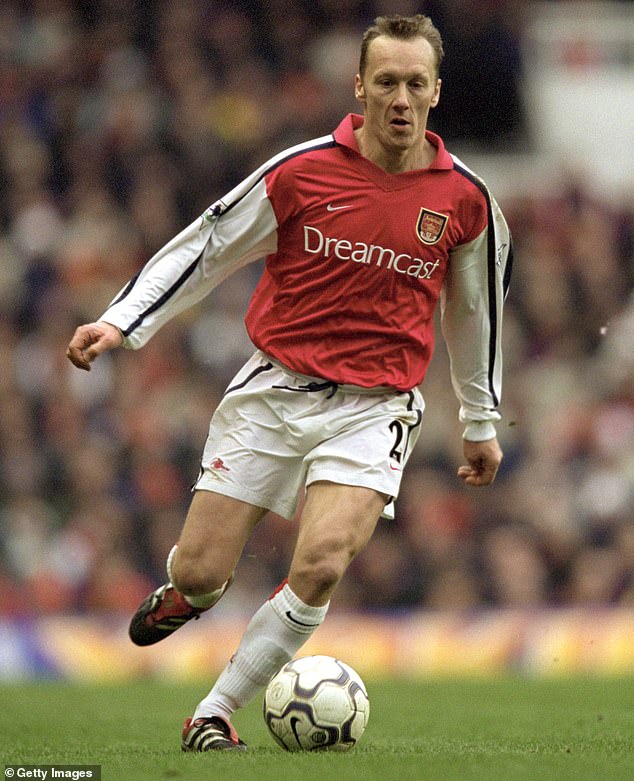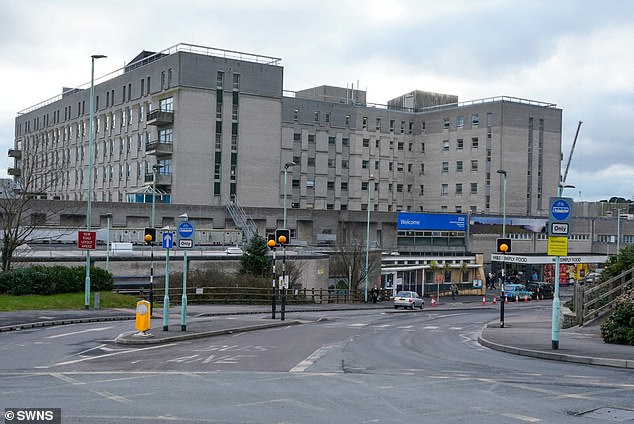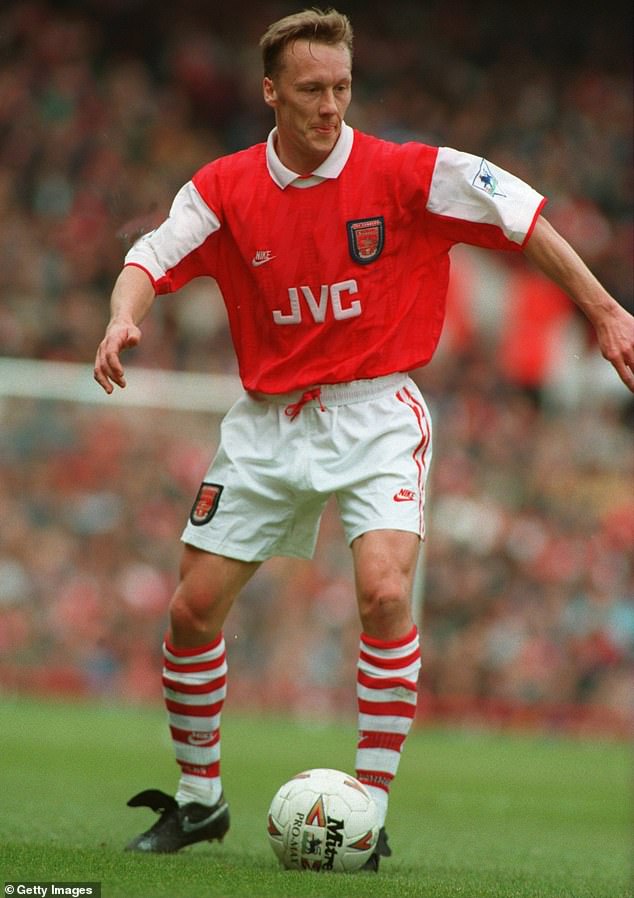A hospital patient found himself at the head of the queue for a life-saving heart operation after he was mistaken for legendary Arsenal defender Lee Dixon.
Lee Dixon had been admitted to an Exeter hospital after suffering a stroke – and found himself fast-tracked for surgery after a Gunners-loving cardiologist spotted his name and came in to speak to him, hoping to meet the star.
But the doctor was to be disappointed: instead of the right-back, he was confronted with an antiques dealer from Devon who prefers wrestling to football.
Mr Dixon, from Buckfastleigh, was about to be sent home by junior doctors who had missed a blood clot the size of a strawberry in his heart.
In a stroke of good luck, the heart doctor examined him and found the anomaly lurking in his chest, recommending him for urgent surgery.
But when it appeared that there were no ambulances available to take him to a hospital for surgery, fortune smiled on Mr Dixon again.
Another Arsenal fan stepped him to save the day, rearranging the ambulance schedule to book an immediate transfer to Plymouth’s Derriford Hospital.
Mr Dixon went under the knife the next day – and has since made a full recovery.

Antiques dealer and second-hand radio salesman Lee Dixon found himself at the front of a queue for a heart operation after he was confused with the Arsenal star of the same name

His namesake, Arsenal legend Lee Dixon, made more than 450 appearances for the club over the course of 14 years

Mr Dixon doesn’t even like football – instead preferring to watch wrestling and run his antiques shop, selling vintage bottles and second-hand radios
The 54-year-old couldn’t believe his luck – but says it isn’t the first time he has been confused with the 61-year-old, known these days for his punditry and commentary in earlier versions of the FIFA video games.
Speaking to MailOnline, Mr Dixon – the antiques dealer – said: ‘I had been out doing my hobby, digging for old bottles, and I had a stroke.
‘I went into Exeter hospital and was there for four or five days. They were just about to discharge me and that’s when the cardiac doctor came in to see if I was Lee Dixon.
‘Although he was disappointed, he did say I was too young to be having a stroke, so he asked to check my heart.
‘And because of that, he found that I had a clot the size of a large strawberry hanging off of it.’
A move to Derriford Hospital looked impossible – until another Gunners fan stepped up, the head matron, who rearranged ambulances to ensure he could be transferred for the operation the next day.
He was under within hours, and surgeons successfully removed the clot before, as he puts it, ‘patching up’ his heart.
Divorced father of two Mr Dixon served in the Royal Navy as a radio operator, and remains a licenced amateur operator to this day.
He now runs Dixon’s Real Deal, a shop selling second-hand radio equipment and the antique bottles he finds at Torquay Indoor Market.
Mr Dixon is awaiting a further operation on his heart, 10 years on, to have a stent inserted.
And were he ever to meet the Arsenal legend, he says he’d like to thank him for the indirect assist back in the summer of 2015.
‘I was able to see the funny side of it,’ he recalls. ‘I’m really thankful that there’s a guy out there called Lee Dixon that’s a famous footballer because there’s a good chance I wouldn’t be here today otherwise.
‘It’s given me a new lease of life. If he was ever in the area I’d like to shake his hand, for sure.’
However, he admits: ‘I’m not into football at all, to be honest. That’s probably one of the reasons I’ve not gone shouting about having the same name as him before now.’

Derriford Hospital in Plymouth, where Mr Dixon ultimately got the operation that saved his life

The ‘other’ Lee Dixon in action for Arsenal against Ipswich Town in 1995. These days, he is best known for his punditry
Lee Dixon – the footballer – retired in 2002 after 14 years and more than 450 appearances for Arsenal, during which time he was named in the PFA Team of the Year twice.
He helped steer the club towards four league titles and three FA Cups, and had also played for Burnley, Chester City, Bury and Stoke City.
Mr Dixon, whose story was first reported on by The Sun, is not the only person to be mistaken for a famous namesake.
Virginia man John Lewis was quick to grab the Twitter username @johnlewis in 2007 – and soon found himself the target of tweets that were meant for the department store of the same name.
He went viral after he began replying to complaints, guiding unhappy customers to the correct account with warmth and humour.
Mr Lewis ultimately starred in a Twitter Christmas advert – a ‘John Lewis’ Christmas ad, if you will – but has not posted on the platform since November last year, when he shared images of a gift set he was sent by the store.







